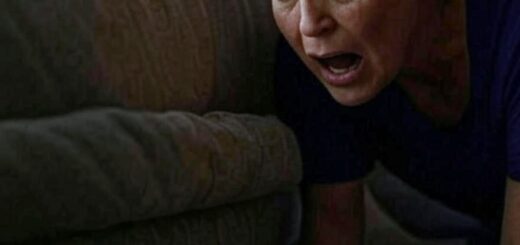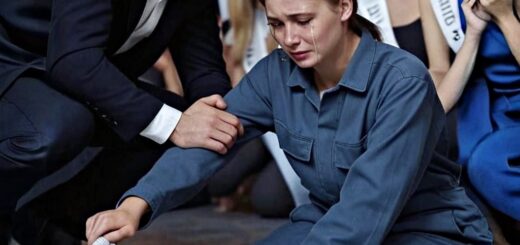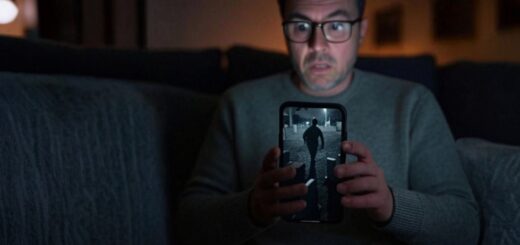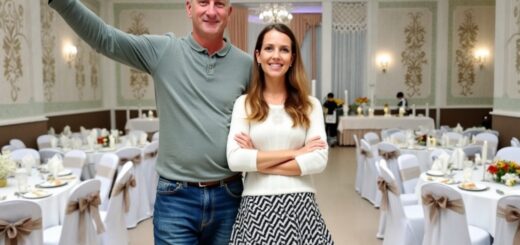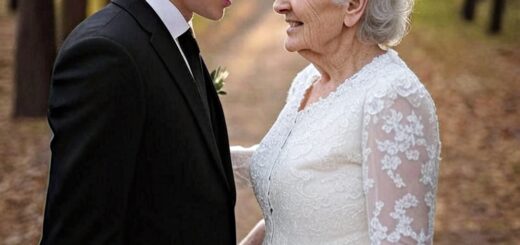I was in a horrific accident and left unconscious. The doctors called my parents—they said…
The intricate woodwork, the stained glass transoms, the wide porch where Grandmother and I had spent summer evenings discussing books and dreams. Allison moved into the East Wing as planned. Our cohabitation was awkward at first.
Too many childhood patterns to unlearn, too many sensitivities to navigate. But we established ground rules and respected each other’s space. Slowly, tentatively, we began building a relationship based on choice rather than obligation.
My business partner Samantha became a frequent visitor, as did Nurse Emily, who’d left the hospital to work for a home healthcare agency. James Wright joined us for Sunday brunches, continuing the tradition I’d shared with Grandmother Martha. You’ve created quite the family here, he commented one Sunday, watching Allison and Emily debate the merits of different medical specialties while Samantha set the table.
Chosen family, I corrected gently. The best kind. My parents made one final attempt to reassert control.
They filed a lawsuit claiming emotional distress, arguing that my letter and the hospital footage had caused them significant psychological harm. It was a desperate move, transparently vindictive. The judge dismissed the case with prejudice, ruling that truth could not be considered harmful speech.
In his written opinion, he noted that they had abandoned their daughter in her time of greatest need and were now seeking to punish her for merely documenting that abandonment. The ruling made local news. Former colleagues, distant relatives, and country club friends all learned what Richard and Margaret Mitchell had done.
Their carefully cultivated social standing crumbled overnight. They left Boston a month later, relocating to Florida without saying goodbye to either of their daughters. Are you okay? Allison asked when we heard the news.
About them leaving? I considered the question carefully. Yes, I said finally. I think I am.
The truth was, they had left me long before they physically departed. Perhaps they had never really been with me at all. With the legal battles behind me, I turned my attention to the future.
My tech company had thrived even during my absence, thanks to Samantha’s leadership. Now we were developing new software inspired by my hospital experience, a communication system for patients with traumatic brain injuries who couldn’t speak but remained conscious. We’re calling it BridgeGap, I explained to Emily over dinner.
It tracks eye movement and brain activity to help doctors determine consciousness levels in non-responsive patients. That would have helped you, she noted. It would have helped the doctors, I corrected.
I knew I was conscious. They didn’t. The project gave purpose to my pain, transforming a traumatic experience into something that might help others.
Grandmother Martha would have approved. As for Allison, our relationship continued to evolve. There were difficult conversations about our childhood, about the favoritism she had benefited from, about her own complicity in my isolation.
But there was also healing. She brought home takeout when I worked late. I helped her study for her board exams.
We discovered we both loved terrible reality TV shows and spent Sunday evenings mocking them together. I never knew you were funny, she told me once, laughing at my impression of a particularly dramatic reality star. You never knew me at all, I replied, but without bitterness.
It was simply truth. A year to the day after the accident, I held a dinner party in Grandmother Martha’s, my dining room. Samantha was there with her new boyfriend.
Emily brought her wife. James Wright came with a bottle of expensive champagne. Allison invited a colleague from the hospital, a neurosurgeon with kind eyes who looked at her with unmistakable interest.
As I looked around the table at these people who had chosen to be in my life, had shown up when it mattered, I felt a sense of completion that had nothing to do with my parents’ validation. I’d like to make a toast, I said, raising my glass. To family.
Not defined by blood or by law, but by love, by choice, and by showing up when it matters most. To family, they echoed, glasses clinking. Later, after everyone had gone home except Allison, I found myself on the porch swing where Grandmother Martha and I had spent so many evenings.
Room for one more? Allison asked tentatively, hovering in the doorway. I patted the space beside me and she sat down. Do you ever wonder where they are now? She asked after a while.
What they’re doing? Sometimes, I admitted. But it doesn’t hurt anymore. How did you do that? Make it stop hurting? I thought about the letter I’d written, about the truth it had contained, about the freedom it had given me.
I stopped expecting them to be something they couldn’t be, I said finally. And I started building a life that didn’t need their approval to be meaningful. Allison nodded slowly.
I’m still working on that part. It takes time, I assured her. And you don’t have to do it alone.
We sat in companionable silence, watching fireflies dance in the gathering twilight. In the distance, a car backfired, reminding me briefly of the accident that had changed everything. But instead of fear or pain, I felt only gratitude for the path it had set me on.
The truth had nearly killed me. But it had also, finally, set me free. I hope my story resonates with those of you who have felt the sting of conditional love or family betrayal.
Remember that family is defined by actions, not blood, by who stays when everyone else walks away.





